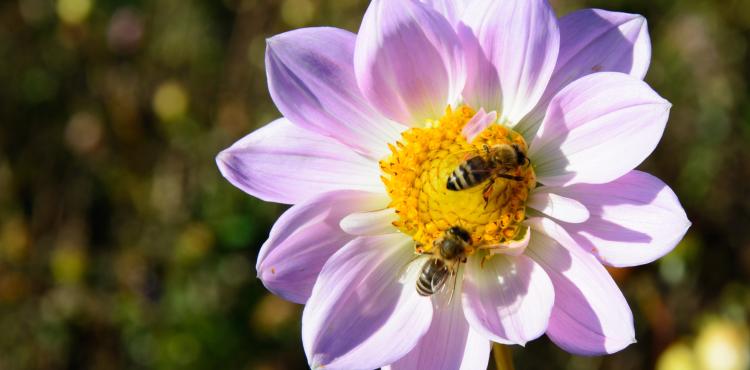
The Commission presented the communication "A New Pact for Pollinators", a plan that, by reviewing the EU initiative of 2018, seeks to curb the decline of wild pollinators in Europe. The plan defines the actions that the EU and member states must take to reverse the trend by 2030 and save pollinators: to date one species in three of bees, butterflies and hoverflies is disappearing. This initiative complements the Commission’s June 2022 proposal for nature restoration legislation and is a cornerstone of the 2030 biodiversity strategy, the "producer-to-consumer" strategy and the European Green Deal.
The Pollinator Initiative sets out a series of 2030 targets and actions, identifying three priorities: first of all, to improve the conservation of pollinators and to address the causes of their decline. This objective will be pursued:
- improving the conservation of species and habitats. For instance, the Commission will develop conservation plans for threatened pollinators, identifying the typical pollinators of the habitats protected by the Habitats Directive. Said pollinators should be protected by Member States, which will also design a network of ecological corridors for pollinators, or "Buzz Lines";
- restoring the habitats of pollinators in agricultural landscapes, in particular through increased support for environmentally friendly agriculture under the common agricultural policy;
- mitigating the impact of pesticides on pollinators, for example by introducing a legal obligation to implement integrated pest management, or additional test methods to determine the toxicity of pesticides to pollinators, including sublethal and chronic effects. Since the excessive use of pesticides is one of the main causes of the loss of pollinators, it will be essential to reduce the risk and use of these products, as indicated in the Commission proposal on the sustainable use of pesticides;
- improving pollinator habitats in urban areas;
- addressing the negative effects of climate change, invasive alien species and other threats, such as biocides and light pollution.
The initiative will also focus on improving knowledge about the decline of pollinators and their causes and consequences. Possible actions include the establishment of a comprehensive monitoring system, support for research and evaluation activities, such as mapping key areas with pollinators by 2025, and actions to promote capacity building and the dissemination of knowledge.
A final priority is to mobilise society and promote strategic planning and cooperation. The Commission will support Member States in developing national strategies in favour of pollinators. The Commission and the Member States will also help citizens and businesses to take action, for example by raising public awareness and promoting science among citizens.